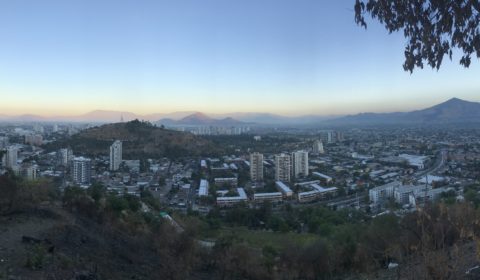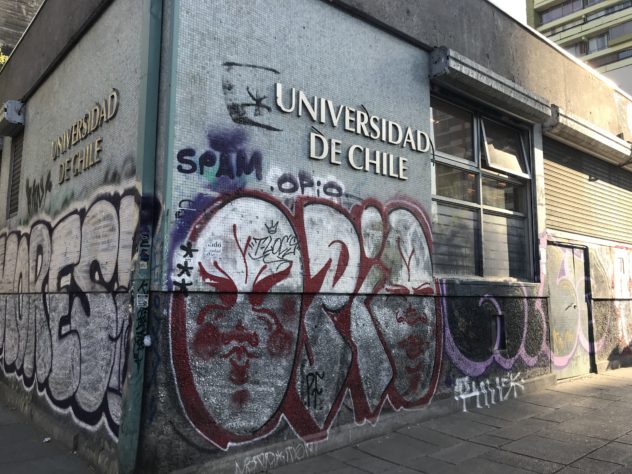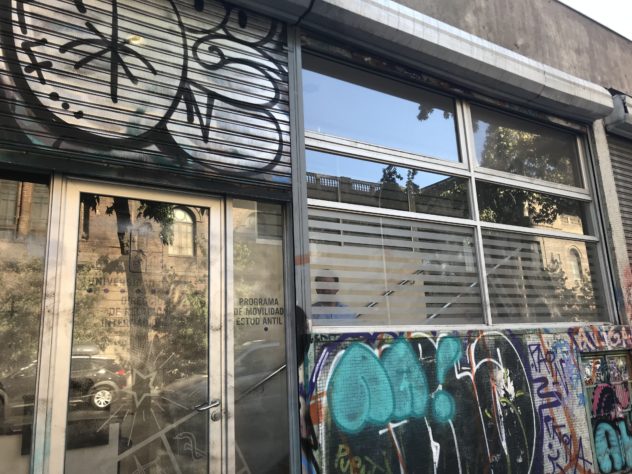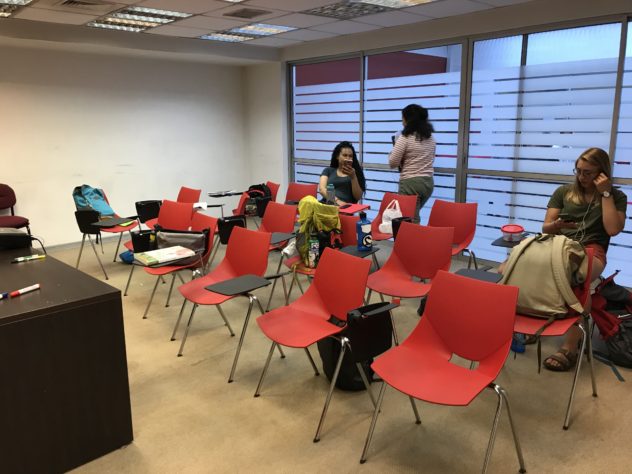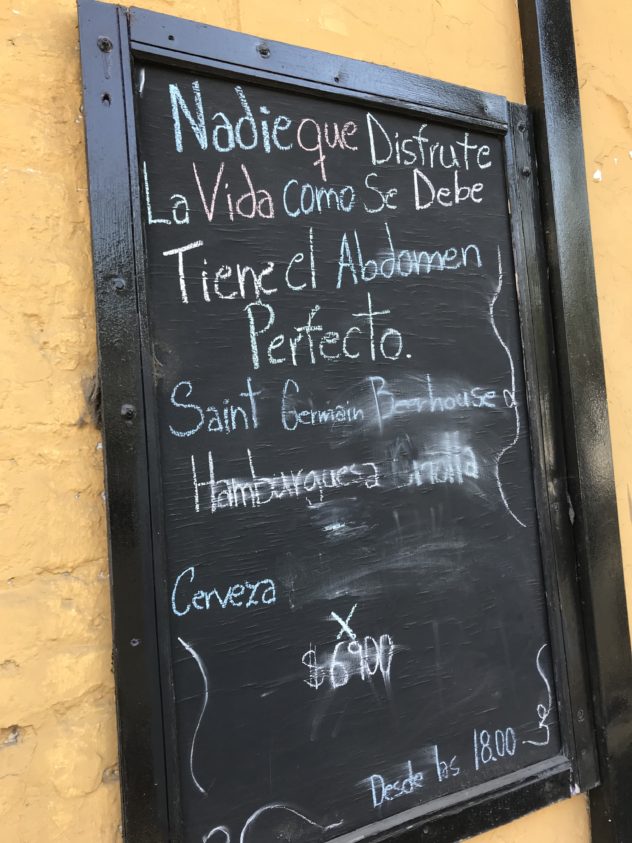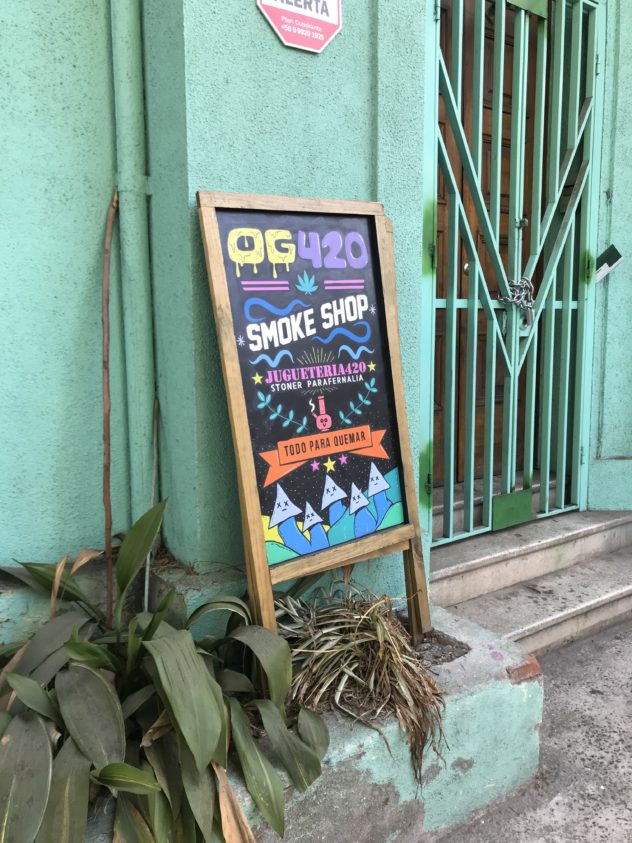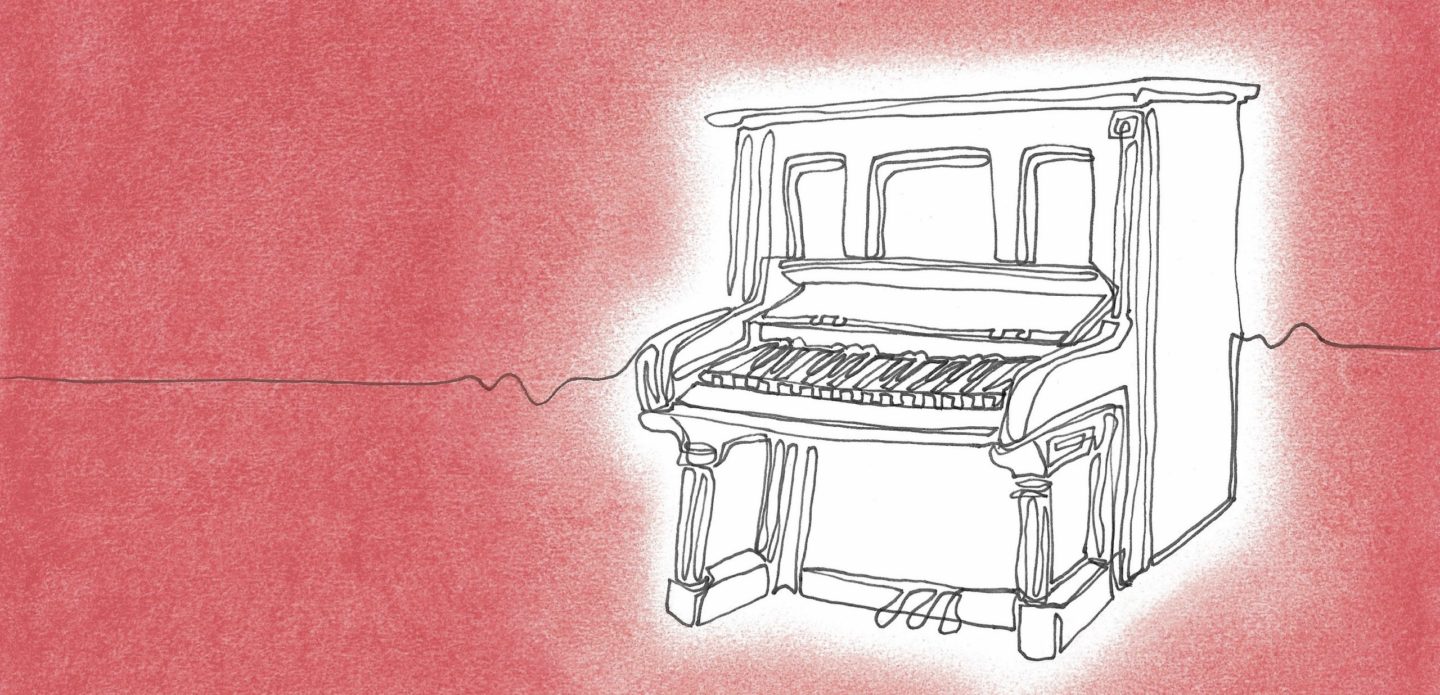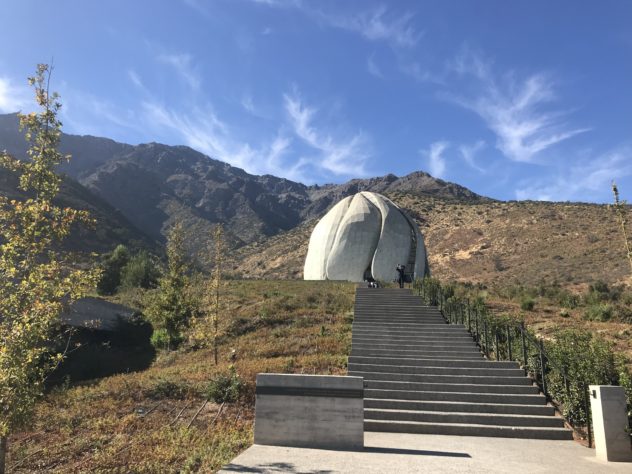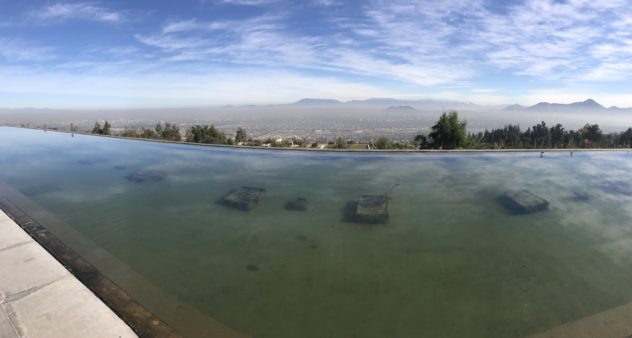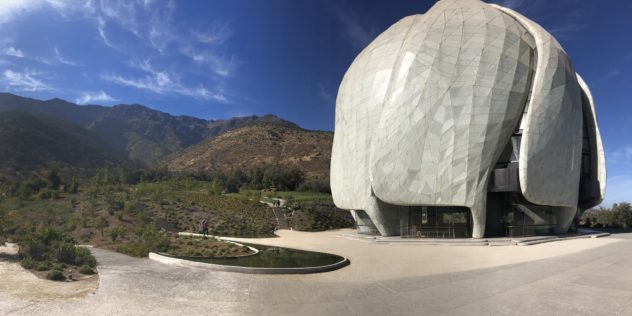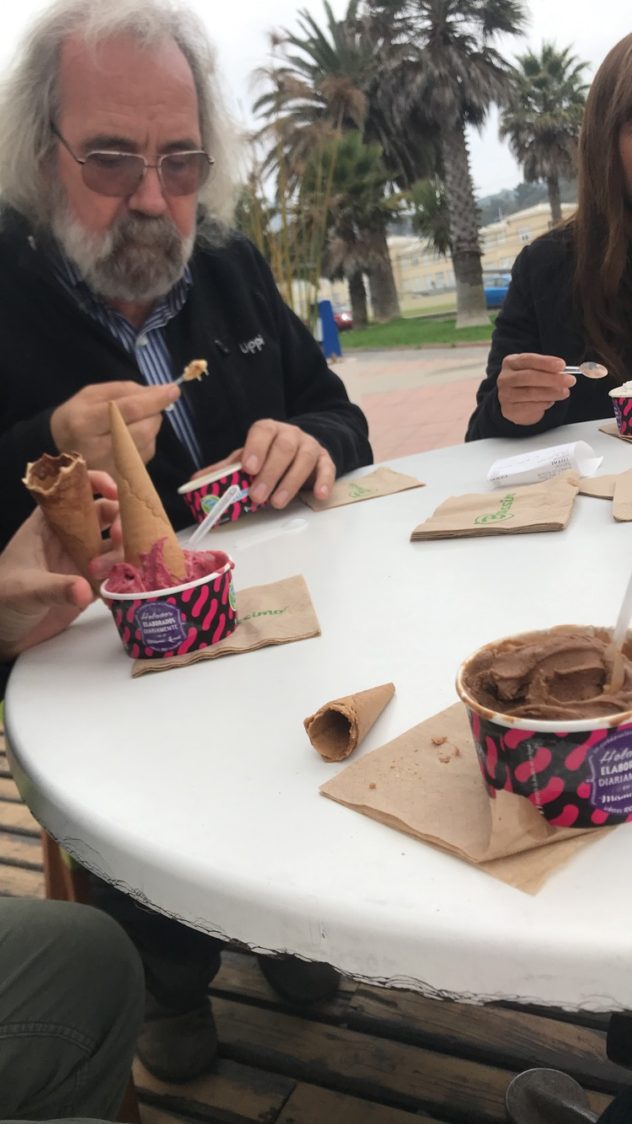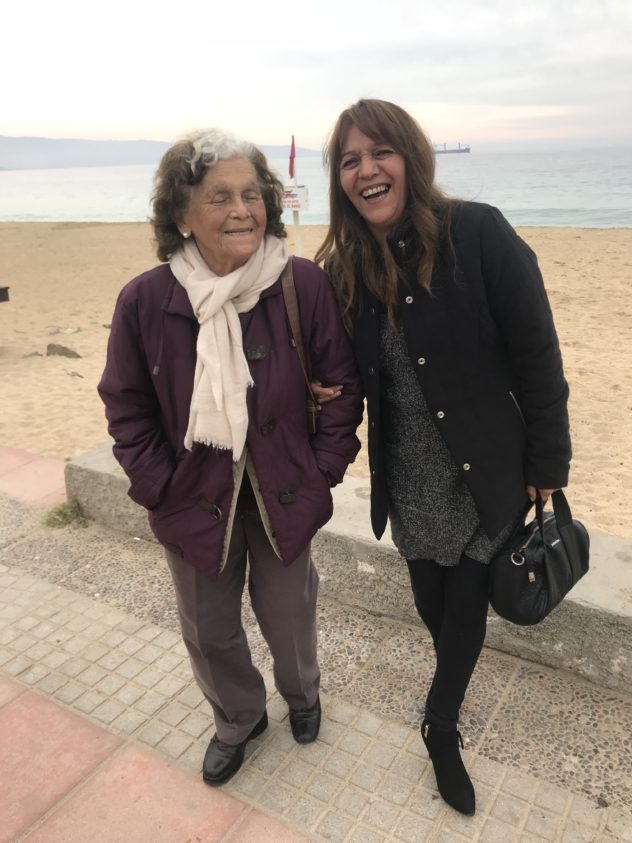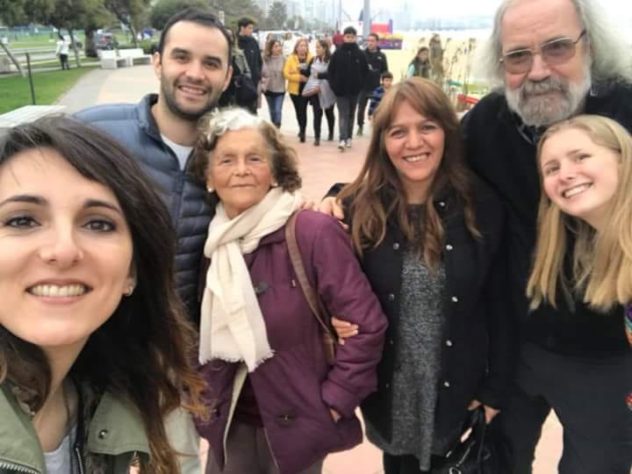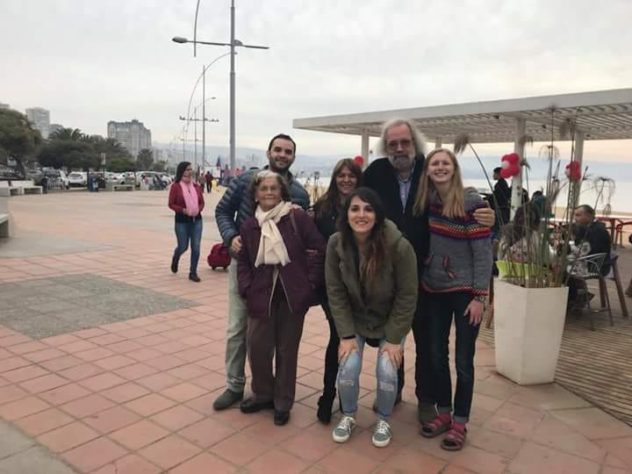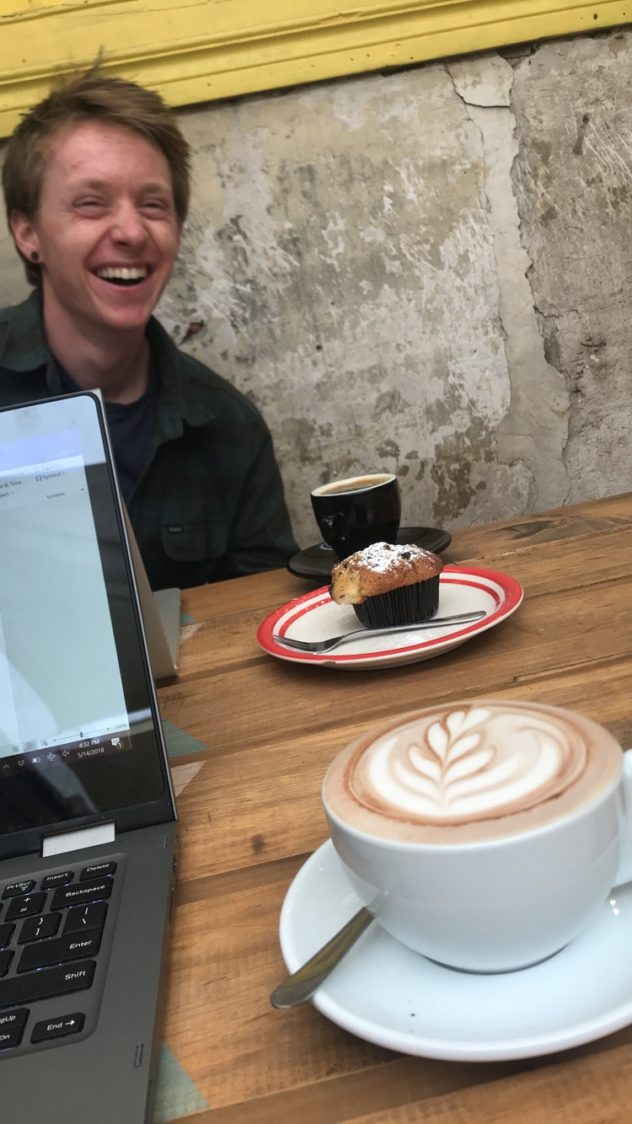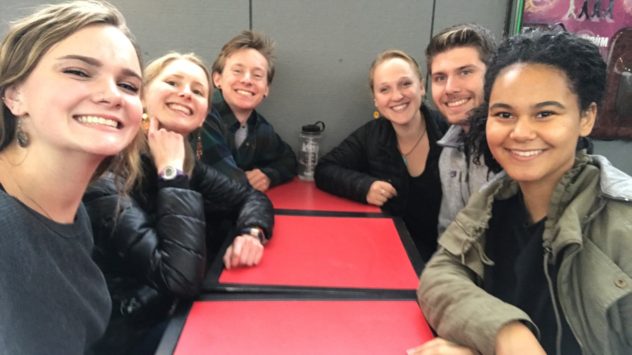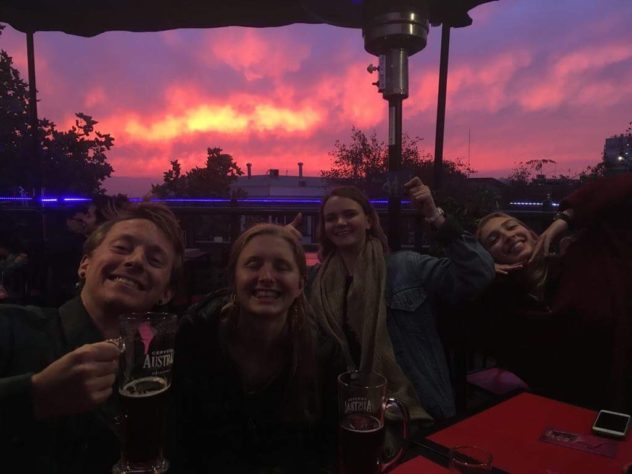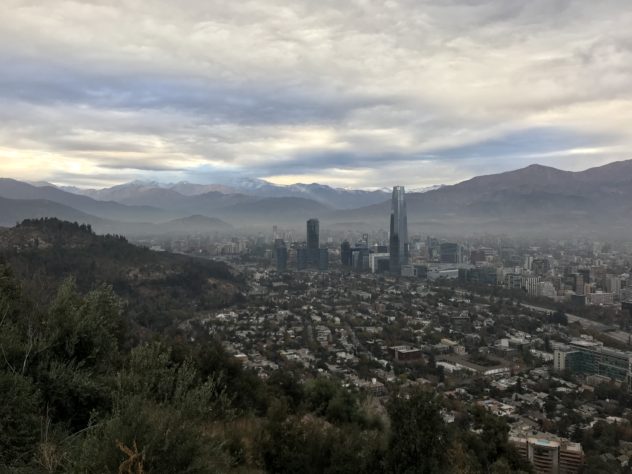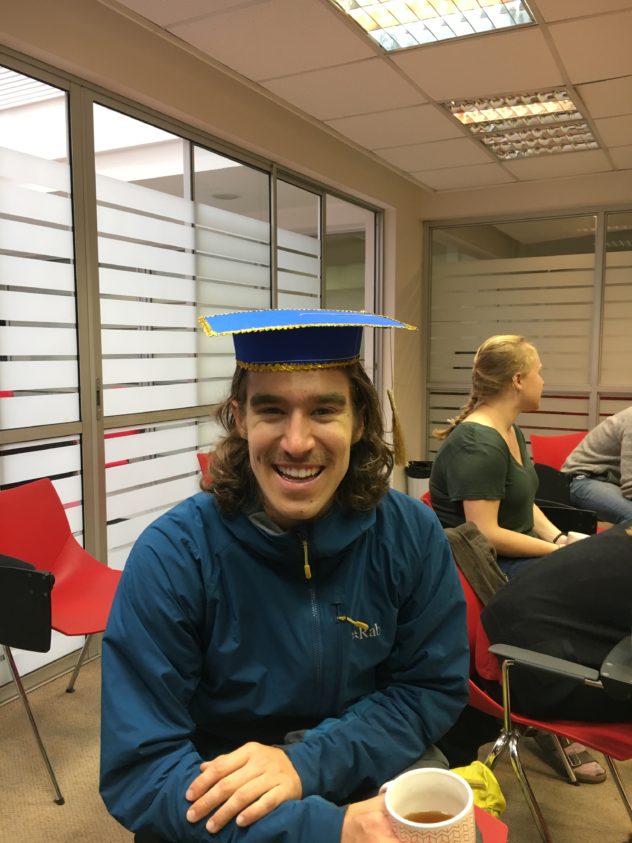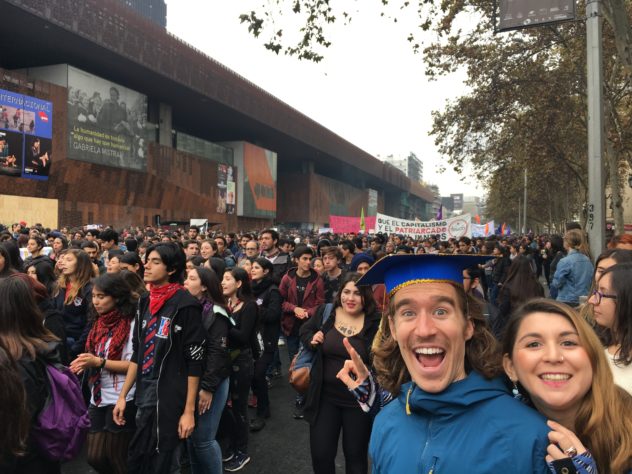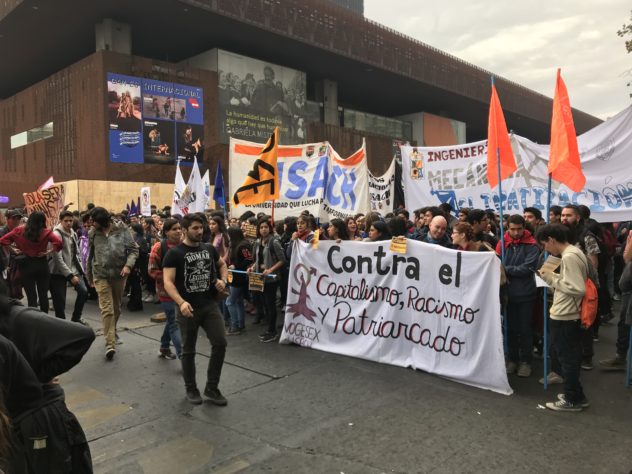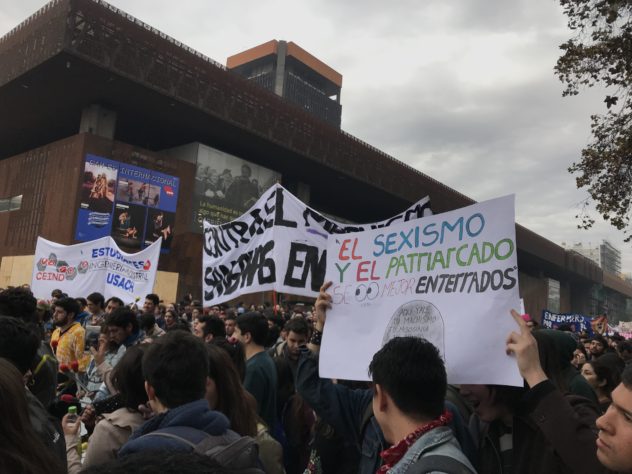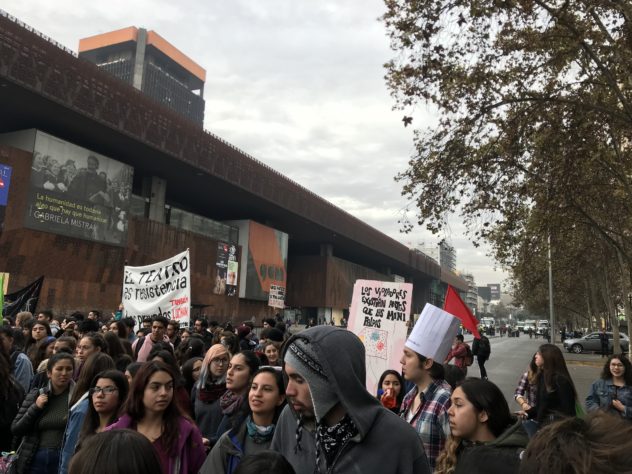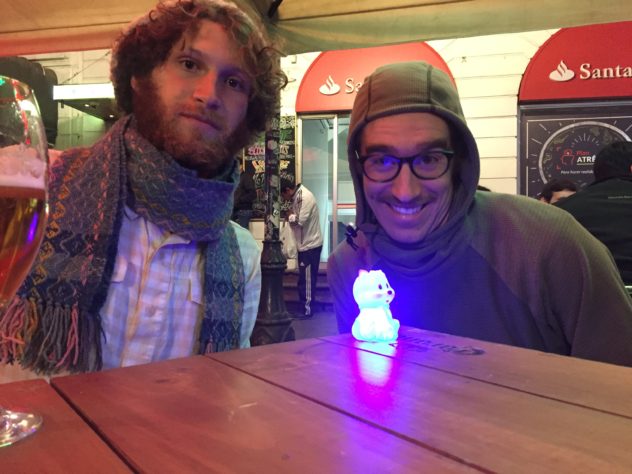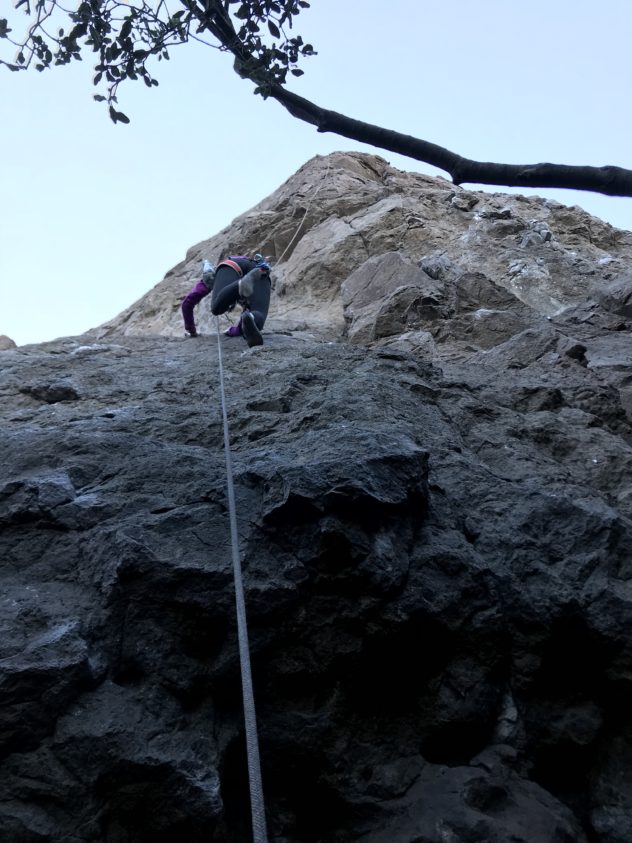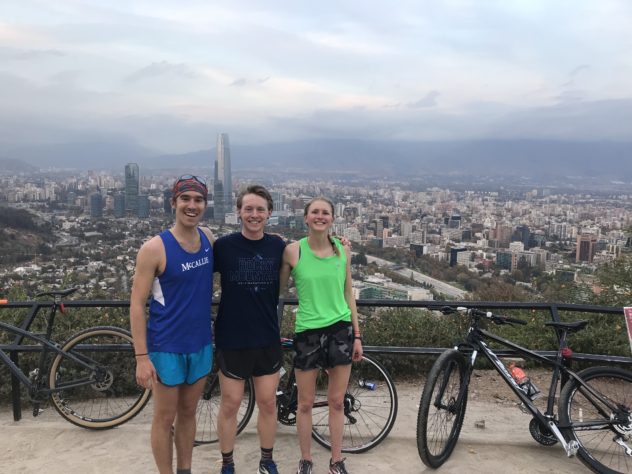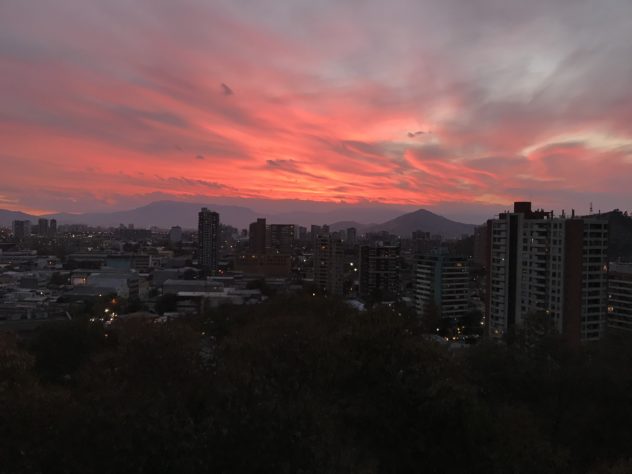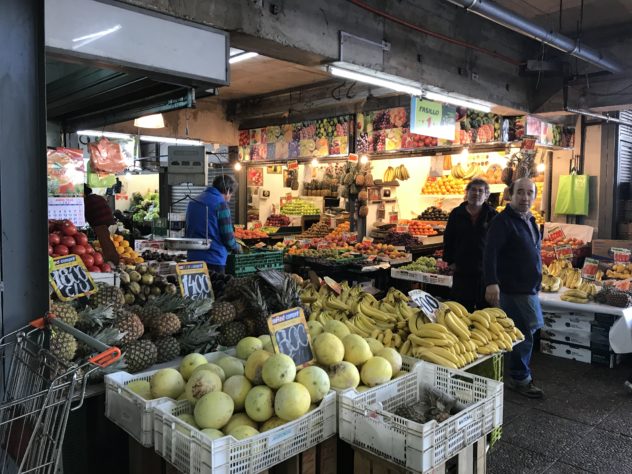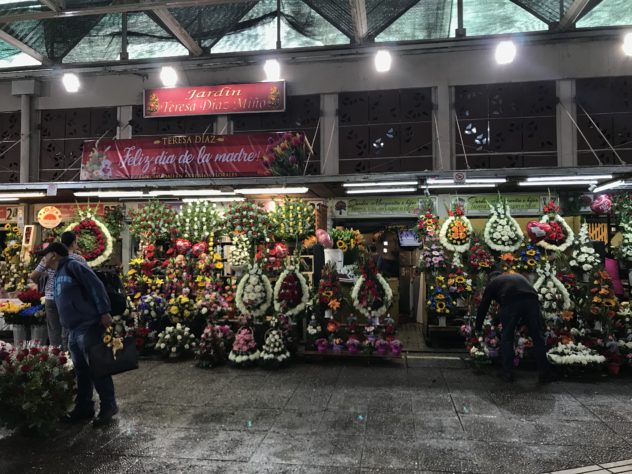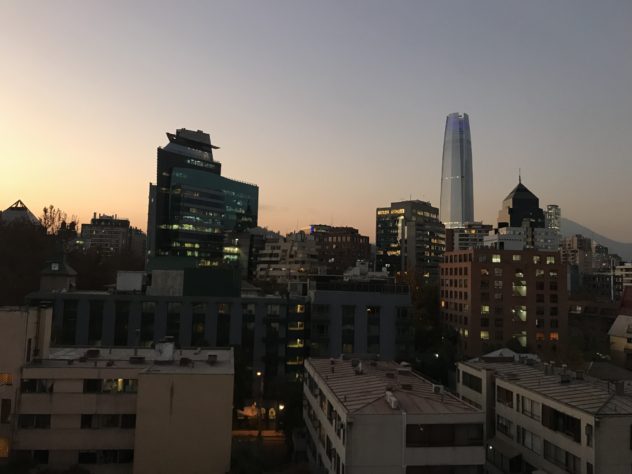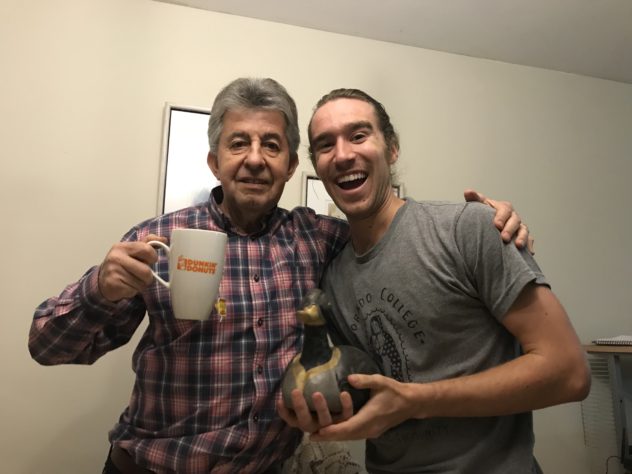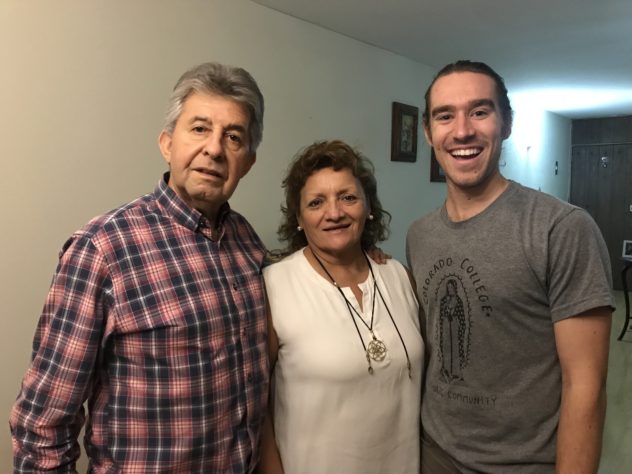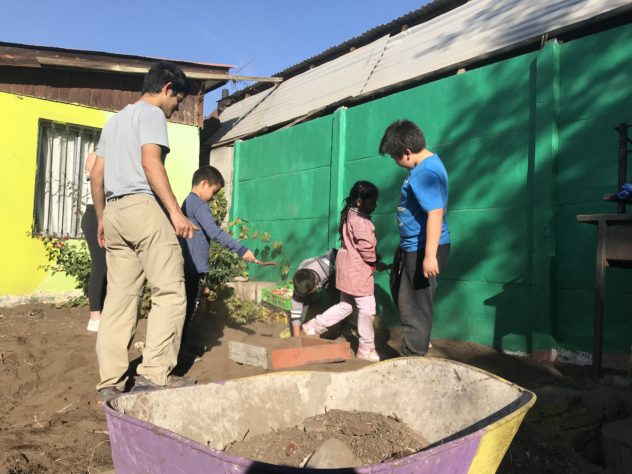Settling In
Paula’s roasts continue and Roberto eats lots of ice cream with me, so you could say things are going swimmingly here.
Since I had very poor WiFi in Cuba, being here in Santiago with a better connection than that of Colorado College – though it’s not hard to beat WiOftheTiger at all – is a blessing. Rather than wait a week or two to collect a bunch of thoughts on one subject, I think I’ll just keep updating as the days go by. After all, I learn a ton just from eating meals with my mom and dad every day.
Yesterday, Austin, our classmate David Eik, and I went running on some trails in Parque Metropolitano, towards the north of Santiago. We were so stoked to finally escape the start-and-stop nature of running in the city, and we also got an incredible panoramic view of the city.
There is something so wonderfully endearing about the routine here. Get up, run, shower, eat breakfast. Say goodbye to mom and dad, walk to school. Class. Return home, play with Clarita, eat lunch with mom. I feel like I’m in grade school again.
The walk to school is about 25 minutes and there are plenty of commuters rushing around, grabbing sandwiches and other quick street food. Right by school is a vendor with sopaipillas, which I had thought was a Mexican dessert. Paula actually served them at dinner last night, though, with her soup (she always makes soup…I love it). Chilean sopaipillas aren’t a puffy, round shape served with honey, as Mexican ones (I’m also basing this solely off of Colorado Springs’ Azada Mexican Grill offering…). These Chilean sopaipillas are round and flat, just kind of a flaky bread. Would eat one at any moment in a heartbeat.
Our class is basically on modern Chilean culture, from Allende on. Our first real class was solely talking about copper by analyzing Pablo Neruda’s “Anaconda Copper Mining Co.” and Gabriela Mistral’s “Cobre.” Interesting and laid-back class.
Yesterday, I returned home for lunch with Paula and her roasts. This time we were talking about housing. She was explaining that Providencia is a great place to live, but it’s no longer affordable for young people; there’s very little space in it to build more housing, so costly apartment buildings go up. This launched her into talking about Centro Santiago, where the school is located. It used to be a nice place, but now she says it’s just too chaotic with immigrants and protests. She complained that many immigrants in Chile don’t adapt to the culture. Not naming names (Venezuelans, Haitians, Bolivians), she thinks a lot of them treat Chile like their own country. So, if they are from a country where the streets are generally dirty, they’ll dirty Santiago’s clean streets. And not change their Spanish at all. Immigrants from Asian countries do adapt well, she says, although Chileans aren’t accustomed to them always. For example, she claims that Koreans have a reputation for being smelly since they cook with lots of garlic? And they dry out fish to eat on their balconies? I don’t know. She said there was actually recently a huge lawsuit at a Chilean spa, because a bunch of women complained to the owner that this one Korean woman was stinking up the place, and they would leave if she kept coming. So the owner told this woman she couldn’t come anymore. Cue discrimination lawsuit.
Paula was also roasting herself and Chileans/immigrants in general for not knowing English! English is too difficult for her, she says, but it’s a problem that not enough Chileans are familiar with the language. Tourists come and ask for help, directions and all, and many Chileans can’t provide a response. I don’t mind, since I’d rather be forced to speak Spanish than be treated like the gringa I am and talked to in English. It worked out well for me yesterday when I went to the Italian neighborhood to get my haircut, for example. My hairdresser was a 30-year-old Venezuelan, who had moved to Chile about 8 months ago. He recognized that I wasn’t Chilean, but could only speak in Spanish with me – he also said English is just too hard for him. He doesn’t plan on going back to Venezuela; he likes Chile, and Barrio Italia is very nice, with lots of art galleries, restaurants, and bars, and is very “hipster” (he literally used the word hipster to describe it, in a Spanish accent. “Heep-stair”). And he’s right. I went walking around the neighborhood, and there are so many trendy shops and mini malls that are connected across streets (meaning you can enter the mall on one street, exit on the adjacent parallel street), each containing an edge-y coffee bar, juice bar, modern furniture store, stationary shop, design store, vinyl record store, bourgie backpack store…the works. I kind of felt like I was in the Soho of Latin America.
Dinner last night was full of good conversation as well. We talked a lot about the Mapuches, the primary indigenous group in Chile. The Mapuches and other native people have lost land all over Chile, but primarily in the south. Roberto says that they are constantly (and rightfully) demanding their land back from the government. The trouble is, most of their land is owned by foreign businesses, so the government has to buy it off these businesses to return it to them. In the meanwhile, radical indigenous people (and so-called “supporters” of these people) will stage protests in which they burn buildings and trucks on the land taken from them. In response, the government tells them that it will not return the land to them if they cause such destruction. It’s all one big mess.
We also continued on the discussion about protests that Paula and I had started at lunch. The university students here are always protesting, among other groups. Paula and Roberto both say that the protests always start with peaceful protesters, and then crazy aggressive people join in and everything turns to madness. Yesterday, there was a protest against an educational reform law that was deemed unconstitutional, implemented by the last president, Bachelet. Isa sent us an email about it, telling us to avoid the demonstration, but also bring it up with our host families as a talking point.
Me: “So there was a protest today, over a law instituted by the last president. Do you know anything about it?”
Roberto: “Yeah, this group protested about that today, there’ll be another protest by another day about another thing. Always protests.”
Me: “Do your students protest much?”
Roberto: “Sometimes. Since it’s the social science department, the students have a lot of ’causes.’ They’re always painting and drawing big murals advocating for this or that cause. You’d think it’s the art department, they’re always painting!”
Clearly the protesting is old news, at least for Roberto. I did ask him about how the students view the newly elected conservative president, and he just said that because the students have always been far left, they’re not thrilled with him. The government has swung left ever since Pinochet was booted out of office, so they’ll be making a fuss until this conservative rule ends.
Finally, we discussed Roberto’s classes. He teaches Wednesdays and Thursdays, in the social science department as mentioned. One of his classes is on “geographic information systems,” which is a lot like census-taking. It’s about logging information about an area in Excel – registering each house and apartment in a neighborhood, for example, documenting the number of residents, their age, nationality, professions, etc. Sounds pretty interesting. His other class is on archaeology, specifically different ways in which archaeologists choose and assess sites. He’s done archaeology his whole life, though he’s not an official archaeologist. I tried to provoke a roast by asking “So, who are the best archaeologists?” thinking he’d say “Well, the [insert nationality here]s are terrible at archaeology,” but I got nothing. I suppose these things can’t be forced. Or must be left to Paula.
I meant for this post to be a combination of today and yesterday, but it’s getting too long…stay tuned.
